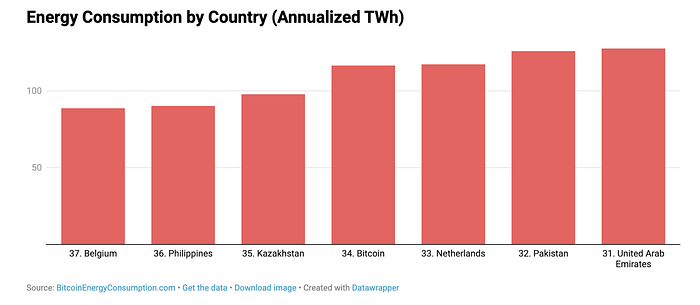Energy Efficiency
Exploring the LGCY DPOS vs traditional POW Consensus Models in terms of energy efficiency
LGCY Network is being built to deliver the optimal balance of speed, security and decentralization, as well as support a thriving developer community to build and contribute to a superior blockchain ecosystem.
Recent news has highlighted the significant energy consumption of Bitcoin and other Proof of Work based consensus protocols. Considerable global focus has moved to sustainability and collaboration across industries to reduce our carbon footprint and protect the world from climate change. This is also a consideration in terms of Blockchain and the models which will shape the future of the industry.
In terms of the ecological footprint of blockchains, PoW-based blockchains are much more energy intensive than PoS or dPoS-based technologies. A single bitcoin transaction uses roughly 707.6 kilowatt-hours of electrical energy–equivalent to the power consumed by an average U.S. household over 24 days, according to Digiconomist.



But what is the key differences between LGCY Network distributed proof of stake (DPOS) consensus mechanism vs the Proof of Work (POW) or Proof of Stake (POS) deployed by other blockchain protocols?
LGCY Network: Distributed Proof of Stake Consensus Model
LGCY Network seeks to create a fully decentralized consensus algorithm, that can achieve consensus both efficiently and democratically.
Blockchains consensus mechanisms vary considerably in their design. The consensus mechanism performs the essential task of verifying network transactions and each design has different implications for the security, speed, and scalability of the network.

Proof of Work works by solving cryptographic math puzzles, where a reward is given to the miner who solves the puzzle within each mined block. Whilst providing a trustless consensus mechanism the complexity of the algorithms results in considerable energy to provide the network with an effective and secure validation methodology.
LGCY Network uses a Delegated Proof of Stake mechanism. The DPOS consensus mechanism rewards delegates for their role in validating transactions, with the delegates verifying and holding each other accountable for the validity of each transaction.
DPOS consensus mechanisms such as those deployed on LGCY, as well as other networks like Tron or EOS will typically utilise about 66,000 times more energy efficient in validating transactions when compared to Bitcoin (Source https://www.genereos.io) and over 17,000 times more energy efficient when compared to Ethereum.
LGCY Network are working hard to deliver a world class blockchain, delivering speed, scaleability and security whilst also delivering an efficient and environmentally friendly network.
Last updated